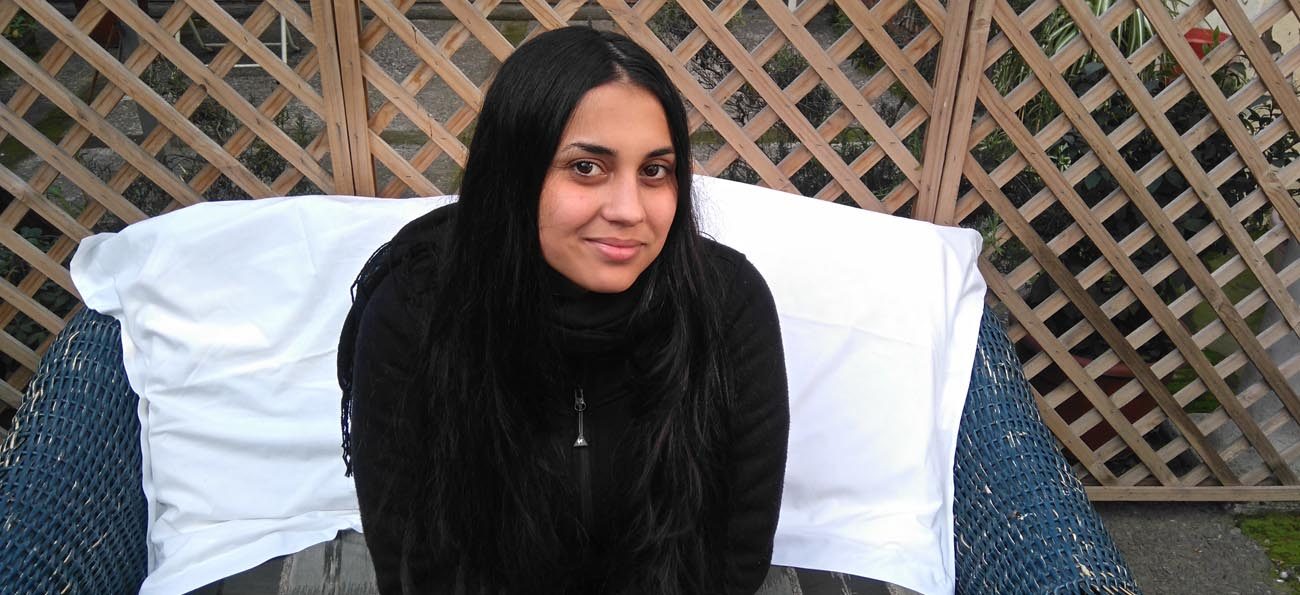SANTIAGO, Chile (CNS) — Most of the women who visit social worker Ana Maria Musre Hernandez have tried to have an illegal abortion with pills or herbs. They are desperate and do not know what to do.
Musre, a social worker with Chile’s Catholic-run San Jose Foundation, works at a home for pregnant women. In a country that just recently legalized abortion in some circumstances, women who give up their children for adoption face a stigma.
“Putting your child up for adoption is still a very taboo subject in Chile,” Musre told Catholic News Service. “Women who decide to give up their babies are often judged very harshly, even though they are often doing it because they want their children to have a better life. So it’s a topic that the women find very hard to open up about. They are often doing it in complete secret, without telling their family or friends, and we are here to help them.”
[hotblock]
Musre and her team help the women with psychological support, take them for checkups and are with them during the birth. They have helped thousands of women through the process, using three homes and walk-in centers.
“We have eight women staying here at the moment,” Musre told CNS at the home in central Santiago in late August. “Four of them are immigrants. We help them decide if they want to go through with the adoption process or keep their babies.”
Karina Margot Ibanez, 20, gave birth in January, and she decided to give her child up for adoption. Ibanez said she had not planned to get pregnant, but her boyfriend wanted children, so he tricked her.
“It was a dreadful time,” she told CNS. “I thought and thought about having an abortion, but decided I would be an assassin, if I went through with it. I just couldn’t take the life away from something that already existed.”
A friend at work told Ibanez about the San Jose Foundation.
“I was scared and embarrassed to get in touch. I had so many doubts about what to do with my pregnancy, but they listened to me and helped me decide,” she said.
Even though she lives with her family, she did not tell them she was pregnant, but that her weight gain was related to her kidney problems and that she was just swollen with some kind of cyst. She told CNS her family still does not know she had a child, although she admitted she thinks they purposefully shut their eyes to what was going on.
Until recently, Chile was one of six nations in the world where abortion was illegal in any circumstances. In August, it passed a law allowing abortion in cases of rape, if the mother’s life is at risk or if the fetus has a birth defect.
Earlier, Archbishop Juan Gonzalez Errazuriz of San Bernardo addressed the Chilean Senate on the issue.
“We think that changing the law is the worst solution possible,” he said. “It’s is going to create a culture where more and more people are against life. And what is really important for us in the church is that it is going to end the life of a human being which has already been conceived. We also think that, despite what the government and people who support the new law say, this makes it easier for anyone to have an abortion in Chile, regardless of circumstances.”
[hotblock2]
Musre told CNS that foundation staffers advise the women and girls — some as young as 11 — about their options. She said 80 percent of the women decide to keep their baby, and team members help them with social networks to support them once the baby is born. The foundation also helps the 20 percent who decide to go through the adoption process.
“Some of the women don’t even want to look at their child when they give birth” said Margarita Villa Palma, who has been working at the home for the past 10 years.
Villa Palma is responsible for taking clothes and diapers to the hospital for the newborn babies. She said faith plays a large role in her work.
“As a Catholic, I always tell them that there is a God, and he with us; we need to focus on him and he will help us. I like to work with these women because they have taught me many things. You can’t imagine what some of them have been through. I have learned to be more tolerant and to love them,” she said.
PREVIOUS: Pope: God wants people to dream big, not listen to cynics
NEXT: Pope, Orthodox patriarch issue joint plea for care of creation



Share this story